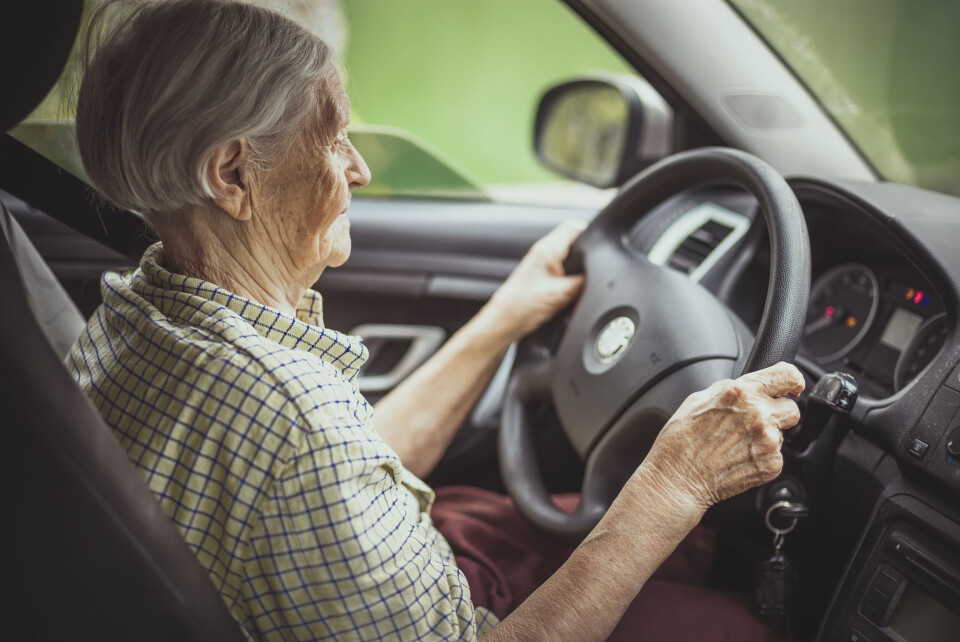-
‘No-licence’ cars: six rules to know in France in 2025
Double the number of these cars were registered in 2024 compared to 2019
-
Hiker stumbles across pack of seven wolves at Alpine ski resort
‘Unprecedented’ video captures wolves roaming on slopes
-
Deadlines for sending Christmas post from France to UK and other destinations
Deadlines for many international destinations are different
France bans Alzheimer’s patients from driving: Reaction
The director of an Alzheimer’s association has said he thought the decree was a ‘belated April Fool’, amid a wider debate on the safety of older people behind the wheel

An Alzheimer’s association in France has said it is “surprised” by a new decree that bans patients with neurological conditions from driving, amid a wider national debate on the safety of older drivers.
The director of France Alzheimer, Benoît Durand, said the surprise was even greater as his association has been participating in a study on Alzheimer's patients, and their ability to drive, for more than a year.
The new decree was published in le Journal Officiel on April 3. It included the new ban in a list of updates on which conditions, illnesses, and disabilities should be taken into account when it comes to getting a driver’s licence.
Mr Durand told FranceInfo that the decree had come too soon, and had not waited for the results of his association’s study.
He also said it did not state who – whether a doctor or a neurologist or someone else – would make the decision about who can and cannot drive.
He said: “I thought it was a belated April Fool. I’m surprised because we were commissioned to carry out a study on mobility and in particular on the problem of driving (with the Prévention routière and the Fondation Médéric Alzheimer), partly financed by the State, which has been going on for a year and whose conclusions should be available in a few months.
“So I don’t understand this decree. It has arrived too soon.”
Difficulties with diagnosis
He added that diagnosing the condition is not always straightforward.
He said: “The decree says ‘upon the onset of cognitive decline, and in particular pathological decline such as Alzheimer's or related diseases, a total ban on driving’. But who will take responsibility? Who takes the decision?
“Is it the GP? The neurologist? There can be a certain delay between the GP who can pre-diagnose cognitive problems… and the referral to a neurologist who will make a diagnosis. In certain departments and towns, there can be a delay of 12-18 months before an appointment is made, and an even longer delay before a diagnosis is made.
“What happens during this waiting period? I don't know. Have the insurers also been brought into the loop? Who takes responsibility for removing the keys?”
‘Their only means of independence’
Mr Durand added that removing someone’s mode of transport could also cause even more problems, especially if there is no extra support.
He said that often “people who are ill are in denial” and “even when there is a diagnosis, they withdraw into themselves… there is a kind of isolation. How are these people going to cope?”.
“If they no longer have a car, how will they manage? Transport to activities, doctor’s appointments…? Their only means of independence could be the vehicle. That doesn’t mean that we shouldn’t take it away if they are a danger to others.
“But how do we support them? Who is going to explain it to them? Who takes responsibility? Who will help them?”
Should older drivers be required to take a test?
It comes soon after a debate over whether older drivers should be able to continue driving without a medical test recently restarted in France.
It was relaunched by campaigner and tennis Paralympian Pauline Déroulède, who lost her leg in 2018 after an accident caused by a 92-year-old driver.
Read more: Should older drivers in France be required to take a medical test?
Similarly, drivers over 65 in eastern France are currently being offered free refresher courses by the local authority to help update their driving skills and improve their safety on the roads.
The lesson includes an update on road signs, speed limits, the effects of alcohol, and how to stay alert to distractions, including noise and physical hazards; and reaction times, which can slow down with age.
There is also a section on how medication can affect your concentration, with a particular focus on medicines that are more common among older people – such as painkillers, hypertension drugs, diabetes treatment, and medicines for urinary tract conditions.
Read more: Drivers aged 65 and over offered free refresher courses in east France
In 2019, it was confirmed that drivers over the age of 75 would not be required to have a medical exam in order to keep their driving licence, but this question is continually debated.
As Mr Durand discovered, French law is continually being updated to reflect which conditions people must declare in the event of a diagnosis that could affect their ability to drive.
For example, in the event of severe epilepsy or diabetes, people found to be at risk can have their licence taken away or not renewed.
Drivers in France must declare all medical states that could affect their driving. If they do not, and there is an accident, they risk being found personally entirely responsible for the incident.
Related articles
Drivers aged 65 and over offered free refresher courses in east France
France rules out health checks on older drivers
Should older drivers in France be required to take a medical test?
























